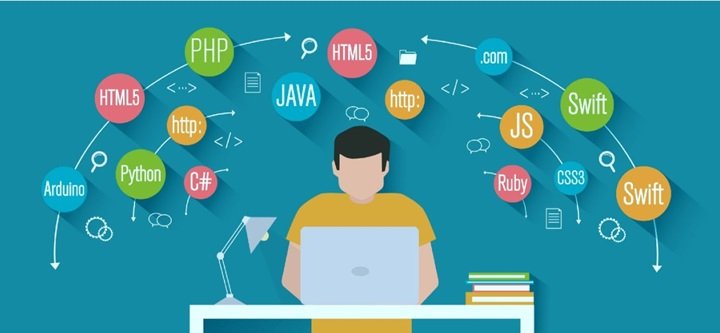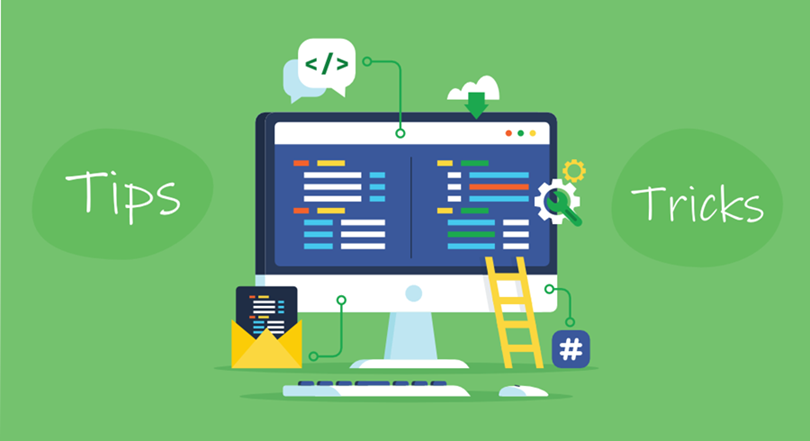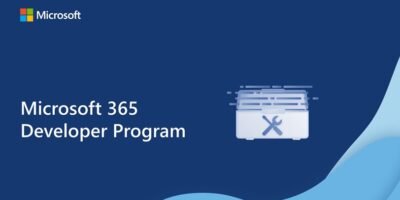Table of Contents
Introduction – Essential Coding Tips
Hey there, coding enthusiast! Whether you’re just starting out or looking to sharpen your skills, these 50 tips are designed to help you become a better programmer. Let’s dive in!
1. Start with the Basics
Master the fundamentals: variables, loops, and basic data structures.
Example: Learning how to manipulate arrays and lists is foundational.
2. Write Clean Code
Clean code is easier to read and maintain. Use meaningful variable names and follow coding standards.
Example: Instead of x, use totalSales to describe what the variable represents.
3. Comment Wisely
Comments should clarify your code. Aim for self-explanatory code but comment on complex logic.
Example:

4. Learn Version Control
Version control like Git helps you track changes, collaborate, and revert to previous versions.
Example: GitHub and GitLab are popular platforms for hosting repositories.
5. Practice Problem-Solving
Solve coding challenges on platforms like LeetCode and HackerRank.
Example: Treat these challenges as brain teasers—they improve your coding skills.
6. Understand Algorithms and Data Structures
Efficient coding relies on a strong grasp of algorithms and data structures.
Example: Use hash maps for quick data retrieval instead of iterating through a list.
7. Code Daily
Consistency is key. Even 30 minutes of coding daily can lead to significant improvements.
Example: Like learning a musical instrument, daily practice matters.
8. Learn Multiple Languages
Different languages offer unique strengths. Diversify your skills.
Example: Python for scripting, Java for enterprise apps, JavaScript for web development.
9. Read Others’ Code
Study open-source projects or your colleagues’ code to learn new techniques.
Example: Browse GitHub repositories to see how experienced developers structure projects.
10. Master Debugging
Use debugging tools and learn to read error messages effectively.
Example: Use breakpoints to step through your code and find bugs.
11. Optimize Your Code
Understand the time and space complexity of your solutions.
Example: Look for O(n log n) solutions instead of O(n^2) where possible.
12. Work on Real Projects
Apply your knowledge to real-world projects to build practical experience.
Example: Create a personal website or contribute to open-source projects.
13. Participate in Code Reviews
Reviewing code helps you learn and improve. Seek feedback on your code.
Example: Join a team that practices peer code reviews or seek feedback online.
14. Stay Updated with Trends
Technology evolves quickly. Follow industry news and read blogs to stay informed.
Example: Subscribe to newsletters like Hacker News or TechCrunch.
15. Learn Design Patterns
Design patterns provide solutions to common software design problems.
Example: Use the Observer pattern for a subscription mechanism in a chat app.
16. Write Tests
Testing ensures your code works as expected. Practice test-driven development (TDD).
Example: Write unit tests before coding the actual functionality.
17. Learn SQL
Understand databases and SQL for backend development.
Example: Practice writing queries and understanding normalization in relational databases.
18. Commit to Lifelong Learning
Technology never stops evolving. Invest in continuous learning.
Example: Take courses on Coursera, Udemy, or edX.
19. Network with Other Developers
Connect with other developers to exchange knowledge and opportunities.
Example: Attend meetups, conferences, and join online forums like Stack Overflow and Reddit.
20. Use Your IDE Efficiently
Learn the shortcuts and tools available in your Integrated Development Environment (IDE).
Example: IntelliJ IDEA for Java, PyCharm for Python, and Visual Studio Code for multiple languages.
21. Understand Client-Server Architecture
Knowing how client-server architecture works is crucial for web development.
Example: Understand how HTTP requests and responses work in a web application.
22. Develop Soft Skills
Communication, teamwork, and problem-solving are just as important as technical skills.
Example: Practice explaining your code and solutions to non-technical stakeholders.
23. Embrace Agile Methodologies
Agile practices like Scrum and Kanban improve project management and delivery.
Example: Participate in sprint planning, daily stand-ups, and retrospectives.
24. Document Your Code
Good documentation makes your code more understandable and maintainable.
Example: Write clear README files and inline documentation for your code.

25. Handle Errors Gracefully
Implement error handling to make your applications more robust and user-friendly.
Example: Use try-catch blocks to manage exceptions and provide meaningful error messages.
26. Follow Security Best Practices
Learn about common security vulnerabilities and how to protect your code against them.
Example: Sanitize user inputs to prevent SQL injection attacks.
27. Leverage Libraries and Frameworks
Libraries and frameworks can speed up development and provide reliable solutions.
Example: Use React.js for building dynamic web applications or Django for Python-based web development.
28. Refactor Regularly
Regularly refactor your code to improve its structure and readability without changing its behavior.
Example: Break down large functions into smaller, reusable ones.
29. Understand Asynchronous Programming
Learn about asynchronous programming to handle tasks like I/O operations without blocking the main thread.
Example: Use async/await in JavaScript to manage asynchronous code.
30. Build a Portfolio
Showcase your projects and skills through a personal portfolio website or GitHub profile.
Example: Create a portfolio that highlights your best projects and contributions.
31. Use Design Tools
Familiarize yourself with design tools like Figma or Sketch to improve your UI/UX design skills.
Example: Design wireframes and prototypes before starting to code the UI.
32. Contribute to Open Source Projects
Contributing to open source projects helps you learn from real-world codebases and collaborate with other developers.
Example: Find projects on GitHub that interest you and start contributing.
33. Automate Repetitive Tasks
Automation can save time and reduce errors. Use scripts and tools to automate repetitive tasks.
Example: Write a script to automate your build and deployment process.
34. Learn About Cloud Services
Understanding cloud services like AWS, Azure, and Google Cloud can enhance your backend development skills.
Example: Deploy a web application on AWS using EC2 and S3.
35. Focus on Performance
Write code that performs well, especially for resource-intensive applications.
Example: Optimize database queries and use caching to improve performance.
36. Understand Networking
Basic networking knowledge is essential for web and network programming.
Example: Learn about TCP/IP, DNS, and HTTP/HTTPS protocols.
37. Participate in Hackathons
Hackathons are a great way to practice coding, learn new skills, and network with other developers.
Example: Join local or online hackathons and build projects within a limited time frame.
38. Learn About DevOps
DevOps practices bridge the gap between development and operations, improving the deployment process.
Example: Use tools like Jenkins for continuous integration and Docker for containerization.
39. Stay Organized
Keep your projects and files organized to enhance productivity.
Example: Use a consistent folder structure and naming conventions for your projects.
40. Understand Cross-Platform Development
Learn how to develop applications that work across different platforms.
Example: Use frameworks like Flutter or React Native for mobile app development.
41. Read Technical Books
Invest time in reading technical books to deepen your understanding of programming concepts.
Example: Books like “Clean Code” by Robert C. Martin and “Design Patterns” by the Gang of Four are excellent resources.
42. Set Realistic Goals
Set achievable goals to track your progress and stay motivated.
Example: Break down larger projects into smaller, manageable tasks.
43. Learn About Web Development
Web development skills are essential in today’s job market. Learn HTML, CSS, and JavaScript.
Example: Build a personal blog or portfolio site to practice.
44. Practice Pair Programming
Pair programming involves two developers working together at one workstation. It improves code quality and knowledge sharing.
Example: Take turns driving (writing code) and navigating (reviewing code) with a partner.
45. Explore AI and Machine Learning
AI and ML are rapidly growing fields. Understanding these technologies can open new opportunities.
Example: Start with libraries like TensorFlow and Scikit-Learn to build basic models.
46. Contribute to Tech Communities
Sharing knowledge and helping others can solidify your own understanding.
Example: Answer questions on Stack Overflow or write tutorials on Medium.
47. Understand Software Architecture
Learn about different software architectures, such as microservices and monolithic applications.
Example: Study the pros and cons of each architecture and when to use them.
48. Develop Mobile Apps
Mobile development is a valuable skill. Learn frameworks like Swift for iOS or Kotlin for Android.
Example: Build a simple to-do list app to get started.
49. Learn About APIs
APIs (Application Programming Interfaces) allow different software systems to communicate. Understanding how to use and create APIs is crucial.
Example: Practice building RESTful APIs using Express.js or Flask.
50. Stay Passionate
Enjoy the journey of learning and improving.




Leave a Reply